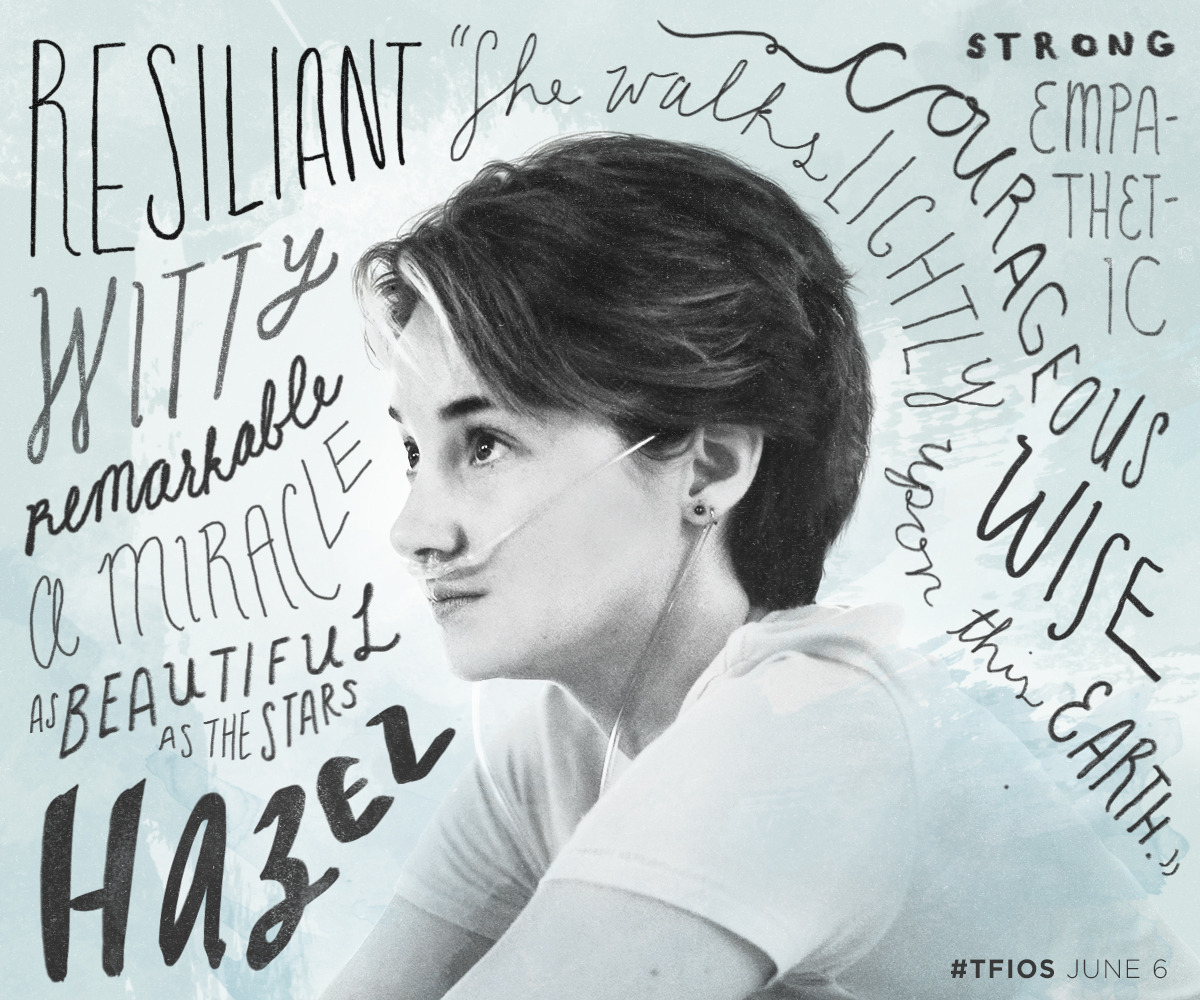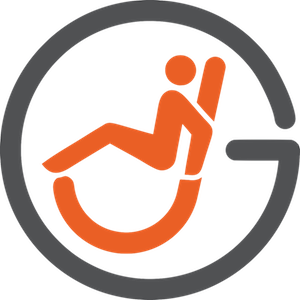“No one should be defined by his or her illness. However, I would be lying if I said that my disorder did not shape who I am. Although my condition is under control, it is something that is always present, that I will have to struggle with. Yes, I am more resilient and thankful for the life I have.”
– Lillie Lainoff
TLDR — I really enjoyed both The Fault in Our Stars ( x 2 ) and the premiere of the new FOX show Red Band Society. They both point out the optimism, a need for presence, and dedication to perseverance that I stress as a person with a disability. At the same time, disagreeing with their portrayals of being a kid with a sickness would be pretty spot on, too. Therefore, a Washington Post opinions piece really got me thinking…
My friend, Rachel, recently sent me a link to a this great Washington Post opinion piece. Titled “Hollywood has it wrong: I’m a teenager with an illness, and it’s not glamorous at all”, the article is a powerful opinions piece by Lillie Lainoff posted last Friday. It reviews the premiere of the new FOX show Red Band Society.The author of the article lives with a disease that she acronyms (who knew that was a verb? Should be.) POTS, that affects her blood pressure in really serious ways, from what I understood.
While my disability isn’t a disorder or something that I view myself as having to truly fight on a day-to-day basis, I admire those who do. Even Rachel, too, I have so much respect and love for just because of the fight that she puts up everyday to deal with hers. But…the strage part is that if people say that to me, you know, “oh my gosh you’re so strong,” and “oh, you’ve gone through so much,” I guiltily and subconsciously roll my eyes sometimes. I mean, I’m just wondering what else would I do? Roll over and die?
But that’s why I admire these ladies…becuase they do.
Anyways, to get back on topic…
The most powerful quote in the article reads: “I am not my illness. But it is part of me.”
Just before that, she writes, “In some ways the show’s faux-realism could be considered positive. I understand the power of portraying sick teenagers as “normal.” No one should be defined by his or her illness. However, I would be lying if I said that my disorder did not shape who I am. Although my condition is under control, it is something that is always present, that I will have to struggle with. Yes, I am more resilient and thankful for the life I have.”
I couldn’t agree with Lillie any more than I already do. I am so eternally grateful for the life that I lead due to my paralysis. It’s the reason I’m a motivational speaker, it’s the reason I meet one new person everyday, and those things together are at least a piece of the the reasons I’ve had access to so many opportunities that I have had. But it’s also subjected me to a lot of pain, exhaustion, hurt, annoyance, confusion, and other terrible, negative emotions. I mean, just yesterday, I was substitute teaching a student says to me …
Oh, you’re a teacher? How are you gonna be a teacher in a wheelchair?
Mind blown? You feeling insulted right about now? Well, don’t. Because I just quipped back with what I always say, especially to kids, who feel this way.
Well, you know, I can really do just about anything you can do with your legs. I just have to do it a little bit differently sometimes. And it definitely doesn’t stop me from being a teacher.
That interaction was indicative of what I’ve experienced a lot thus far in life, especially as a young adult. A young adult that kids and adults, both, stare at as they try to figure out my disability, why my legs are so small, or if I have an intellectual disability as well (because, they often assume). It’s frustrating and maddening but, at the end of the day, I remind myself that I can’t control the perceptions of others. I can only change my behavior which has a possibility of affecting the way we interact, if we have the chance.
I felt particularly compelled to write these feelings out becuase, for weeks now, I’ve been pondering a blog that focuses on my opinions about the movie that was recently adapted from the popular book, The Fault in Our Stars.
I began the book about a month ago, deciding to read it together with Kristin while she is in Rwanda, as a way to sort of “reconnect.” The book actually kept my attention but, I must admit, I did listen to it rather than read it becuase I’m not very good at reading long books, especially when I’m driving with my mom and sister on a road trip to Tennessee. ;)
Nonetheless, I decided to watch the movie a few days later while I was on a cruise to Bermuda, and I will also admit: I cried. And, no, I’m not a man’s man. I would never pronounce that I never cry or anything like that. I cry sometimes. But, honestly, I don’t ever feel compelled to cry at fiction. This movie had me tear up SO hard, and fight pretty hard to hold them back. They came down anyways.
I don’t want to spoil the book, but it’s a damn good teenage love story. In short, the amount of connection that you feel with someone, especially when bonding over a similar struggle, is deep. For me, when my girlfriend at the time experienced a near-fatal traumatic brain injury (TBI), in most ways I felt like our friendship was cemented by virtue of the bond that we now shared in helping each other through medical ailments and challenging experience. To this day, despite living thousands of miles away for the better part of the past year, that feeling remains true. It is eerily similar to what Hazel and Gus experienced in the book and therefore it hit very, very close to home.

Without sharing TMI in a place that the whole inter-webs has access to, there were no less than a dozen times that a dialogue or a thought had between Hazel Grace and her co-characters reminded me of an exact moment or interaction in my own life. Things like…a little kid wanting to use your accommodation (in her case, her oxygen nodules, in my case: my wheelchair). Someone implying that you are less whole because of your disability. Realizing that without pain you couldn’t know joy. Hoping that you’re not one of those people who become their disease. Having socially awkward interactions based on your disability.
And too, in the book, there is one point where she talks about living with her diagnosis. It’s when her and Gus are in the airport. So much of this scene was taken out of the movie and even though that really got to me it remains one of my favorites from the book. Hazel says, “I could feel everybody watching us, wondering what was wrong with us, and whether it would kill us, and how heroic my mom must be, and everything else. That was the worst part about having cancer, sometimes: The physical evidence of disease separates you from other people.”

Now, I’ve rarely truly felt that way. I’ve rarely been in a room and thought “wow, I’m different.” Sure, I’m shorter than most and, of course, there are times where the situation makes me feel that way, like when someone begins a presentation by saying “everyone please stand.” It’s a bunch of BS, if you ask me. And then they come back with the “stand as you are able.” Nice cop out. I don’t complain about it though, because I can’t think of anything better, and I’m not one to complain unless I have some kind of solution…and I still don’t have one.

But at the end of the day, both the Red Band Society and The Fault in Our Stars really got me reflecting and thinking not only on my childhood but also on my life as a person with disability. It’s different, you’re different, I mean we are all different. But like I said, I can’t change people’s perceptions but I can change my behavior to potentially affect what they think about me if we have the chance to interact, sickness/injury/ailment or not.
I know that after interacting with Rachel, I found a new friend whose humor I love and can talk about anything, including Hokie football, with me until the sun goes down. I know that with Kristin, I was affirmed that I found a friend who I can trust limitlessly and completely be myself with, 100% of the time and does the same. none of that has to do with their “disabilities.”
I know that if I ever met Lillie, I’d probably find a young woman who is as as determined and persistent yet well-spoken and entertaining as they come. And I know that if I ever got the chance to meet that charming, fictional little Hazel Grace I’d find a girl that loves DEEPLY and commits herself to what she believes in – whether it’s love or death, or both. And none of that has to do with their “disabilities.”
See, what I’m trying to say here is that living with a disability, injury, disorder, or sickness, simply changes some of the elements of your life. It doesn’t change your emotions. It doesn’t change your ability to forge positive, beneficial relationships. And if Hollywood is going to decide to idolize those people with sicknesses, I can only hope that it encourages those of us in the real world to accept the optimism and view those of us with disabilities just as approachable as they would any one else.
Oh, and btw – Lillie was right. It’s crap that life can start when you go to a hospital. I mean, I appreciate the optimism but, they are the biggest warp away from real life I’ve experienced as a living human being.
